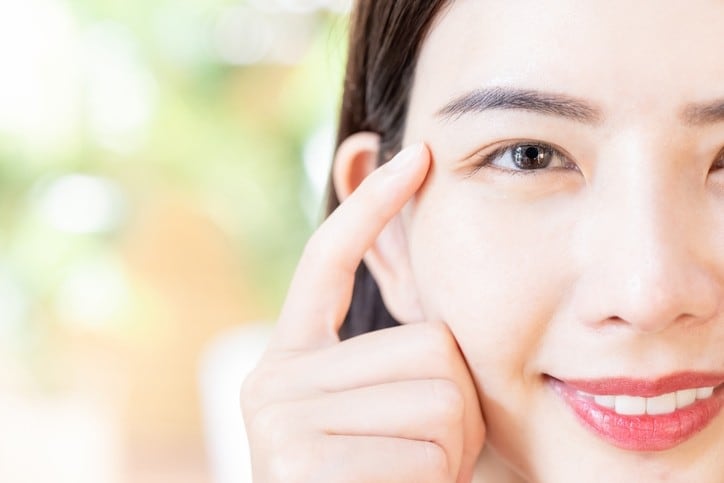Eye problems associated with lengthy screen time are increasingly gaining attention, with terms such as computer vision syndrome, visual fatigue, and digital eye strain often used to describe symptoms, including itching, dryness, blurred vision, and photophobia (light sensitivity).
Lutein and zeaxanthin (LZ) are fat-soluble antioxidant nutrients in the carotenoid family that have demonstrated in several studies to have beneficial effects on eye health.
To examine the effects of LZ supplementation on areas such as visual performance, dry eyes and eye strain, a randomised, double-blind, placebo-controlled trial in Australia, funded by Indian nutraceutical ingredients company Bio-gen Extracts, was conducted over a six-month period.
Seventy participants aged 18 to 65, who spent at least six hours per day viewing an electronic screen at a distance of 1m or less, were included and split into two groups.
For 180 days, the intervention group took one capsule containing 10mg of lutein and 2mg of zeaxanthin isomers (Bio-gen Extracts’s Lute-gen) daily, while the placebo group consumed a capsule comprising sunflower oil each day.
The results were measured using several ophthalmic examinations, including Schirmer tear test (STT), photo-stress recovery time (PSRT), contrast sensitivity (CS) test, visual acuity test (VAT) and tear film break-up time (TBUT), as well as self-report questionnaires of visual fatigue, computer vision, and more.
The STT assesses tear production, PSRT is the time taken for visual acuity to return to normal after the retina has been bleached by a bright light source, CS measures the ability to differentiate between finer increments of light versus dark, VAT evaluates the eye’s ability to see and read a letter or symbol from a distance, and TBUT measures tear film stability.
It was found that compared to the placebo, LZ supplementation was associated with greater improvements in STT, PSRT, and TBUT outcomes.
However, there were no between-group differences in changes in CS and self-report measures like visual fatigue scale (VFS).
“Despite improvements identified in the ophthalmic examinations, this did not translate to significant changes in self-report questionnaires assessing dry eyes, visual fatigue, eye soreness, or other eye-related symptoms linked to high electronic screen use.
“This suggests that the effects were not of enough intensity for participants to recognise meaningful and noticeable symptomatic improvements. Another consideration is that baseline scores on the self-report questionnaires were low, which means that dry eyes and computer vision syndrome were not prevalent in the recruited population, and/or that visual-related symptoms were accepted as part of their everyday experiences,” the authors wrote.
Nevertheless, the results “provide some support” regarding the positive effects of six-month LZ supplementation on regular users of digital screens.
In addition, the supplement was well-tolerated, with no reports of serious adverse reactions or clinically significant changes in vital signs and blood safety measures.
“Future investigations in specifically targeted populations experiencing dry eyes and visual fatigue, and utilising a range of validated objective and subjective measures to examine changes in eye health and visual symptoms over time, will be important to expand on the current findings.”
Effects on dry eyes and macular function
Dry eye disease is characterised by discomfort, visual disturbance, and tear film instability with potential damage to the ocular surface.
Its risk factors include ageing, female gender, contact lens use, history of ocular or laser refractive surgery, and systemic diseases such as rheumatoid arthritis, gout, thyroid disease, and autoimmune disorders.
Environmental and lifestyle factors, such as low room humidity, high temperature, air pollution, lighting conditions, and immoderate screen time, can also exacerbate dry eyes.
A commonly posited hypothesis for the relationship between digital screen use and eye symptoms is that the former changes blinking dynamics, leading to ocular dryness.
Moreover, the overexposure to blue light can contribute to excessive production and accumulation of free oxygen radicals in mitochondria and photosensitive molecules.
Based on the STT and TBUT results in this study, LZ supplementation for six months could increase tear production.
“Physiological mechanisms that may account for the photo-protective effects of LZ may be their antioxidant and anti-inflammatory actions, even though further research is required.”
According to the authors, several studies have indicated that lutein inhibits the pro-inflammatory cytokine cascade and the transcription factor, nuclear factor kappa B (NF-κB).
Another protective effect of lutein may be through its ability to reduce phototoxic damage to photoreceptor cells after blue light exposure.
There is also evidence that LZ decrease reactive oxygen species (ROS) production, and the expression of inducible nitric oxide synthase (iNOS), an enzyme that plays a key role in inflammation and immune activation.
LZ are the main carotenoids in the human macula, often referred to as macular pigments.
Besides enhancing tear production, an improvement in PSRT was also shown in this study.
PSRT is used to measure macular function and diseases influencing central vision, including age-related macular degeneration, central serous retinopathy, and retinal detachment.
“In previous meta-analyses, it was concluded that LZ supplementation increased macular pigment optical density (MPOD), and that MPOD is associated with reduced photostress recovery and improved visual acuity. Therefore, the positive changes in PSRT identified in this study are consistent with other trials conducted in the area.”
Source: Frontiers in Nutrition
https://doi.org/10.3389/fnut.2025.1522302
“The effects of lutein/zeaxanthin (Lute-gen®) on eye health, eye strain, sleep quality, and attention in high electronic screen users: a randomized, double-blind, placebo-controlled study”
Authors: A. L. Lopresti and S. J. Smith





